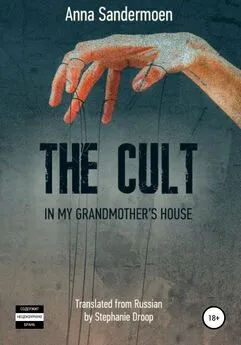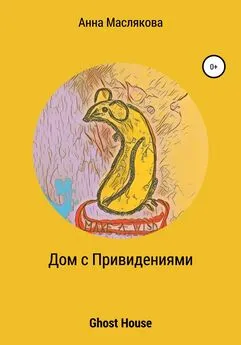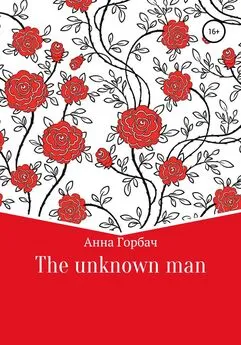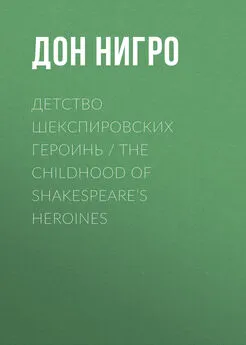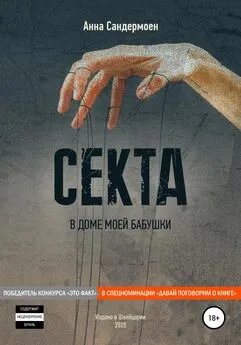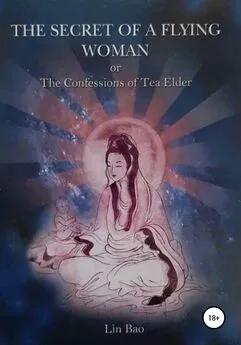Анна Сандермоен - The Cult in my Grandmother's House
- Название:The Cult in my Grandmother's House
- Автор:
- Жанр:
- Издательство:Литагент Selfpub.ru (неискл)
- Год:2021
- ISBN:нет данных
- Рейтинг:
- Избранное:Добавить в избранное
-
Отзывы:
-
Ваша оценка:
Анна Сандермоен - The Cult in my Grandmother's House краткое содержание
The Cult in my Grandmother's House - читать онлайн бесплатно ознакомительный отрывок
Интервал:
Закладка:
A new and official clinic appeared in the centre of Dushanbe to receive outpatients.
Once the initial steps were finished and the organisation was set up, Grandma contacted my parents living in Leningrad and said something like, “Hey why don’t you send little Ania here? Didn’t you say she was having trouble at school? Her maths mark wasn’t brilliant? Uhuh. And she didn’t want to learn poems by heart! See, there’s something not right with her. Let her come here and we’ll treat her, then we’ll see.”
Grandma had become the main proponent of the Chief and his method. She was the brains and the academic core of the cult. She believed in what she was doing with all her heart. She gave lectures, published papers and ran round all the authorities getting official passes and documents. Grandma could sound very convincing. She was an established paleontologist, so it was a natural next step to bring in the idea of the human brain and combine it with evolutionary theories of organisms in general to suggest new therapies and remedial treatments.
It was the perfect combination of charlatan and academic.
Of course, Grandma was a real find for the Chief. In her turn, as an energetic and educated woman with two kids on her hands, tormented by loneliness and disappointment, exiled to the ends of the earth, where woman is nothing, where to prove the contrary you had to be able to part the clouds with your glance, Grandma tumbled headlong into the collective, like into a rabbit hole.
Everybody needs to feel like somebody. Whoever they are, everybody needs to feel like they belong to something big and important. For my grandma this was the collective.
SICK KIDS
The collective would receive children with various illnesses: psoriasis, neurodermatitis, schizophrenia (including nuclear or process schizophrenia, the type with the worst prognosis and hardest to treat), as well as the children of alcoholics and drug addicts – or as we were told, from “difficult families”. I often heard the adults say we were brought up on the Makarenko system . The prominent Soviet educational theorist Anton Semyonovich Makarenko had always been a great influence on the Chief.
Many years later I found out that nowhere near all the children at the collective were ill or from difficult circumstances. Most of them were there for totally different reasons. Either it had been easy to convince the parents their children were sick, and so increase the flock that way, or the parents themselves were already part of the collective and so brought the whole family along; or sometimes they were even the children of high-ranking officials in the Soviet Union. Children of high-ranking officials and people with connections were welcomed with pleasure as they would provide both financial support and a veneer of legitimacy. Of course, for every child there the parents paid a monthly fee, and many also donated their apartments as accommodation.
Since there’s no such thing as a person without problems, there will always be something for psychosomatic ideology and dogma to latch on to.
Once they’d got so much as a hair on your head, you were lost.
THE WHITE HOUSE
Our clinic was situated in the centre of Dushanbe. Between ourselves we called it the White House. Alcoholics and schizophrenics were treated there. It was a typical single-storey central Asian building of whitewashed adobe, with offices and corridors inside. The offices had tables, chairs and benches, where the patients were examined, and then layered.
The street around the White House was dusty and had wooden benches, under which I sometimes found stray sweet wrappers which I loved to smell and keep in my pocket.
I don’t remember anything else about the White House – I was too young then.
EDUCATIONAL PSYCHOLOGISTS
The people in the white coats were respectfully known as educational psychologists, always by their first name and patronymic. Yulia Viktorovna, Natalya Yevgenyevna, Nadezhda Yurevna, Vladimir Vladimirovich and others (including Stolbun himself): none of them had a psychological or medical, let alone educational background. The only more or less constant member of the group who had a medical education was Stolbun’s wife, Valentina Pavlovna Streltsova. She preferred to live in comfort, so I personally saw her only rarely.
I don’t want to exaggerate the quality and level of Soviet education in the fields of education, psychology and psychiatry, because those fields were generally charlatans and were far removed from science. An absence of formal education in these fields could even have been an advantage. It could have been… but in this case it wasn’t.
SPEECHES AND FAINTING
These speeches were held all the time and at any time, even in the middle of the night. This was real brainwashing. The familiar cry could come at any time: “Come on everyone” and you’d have to get up and follow everyone, like zombies, to a speech. The Chief would talk for many hours at a time, gesticulating in the centre of the circle that formed around him, and scratching his shaggy head. His shoulders were always white with dandruff. You weren’t allowed to lie down or even sit. You couldn’t interrupt him or ask questions. We had to maintain absolute silence, and listen reverently.
While talking, the Chief would look everyone in the eyes in turn, as if evaluating the impact of his words, whether people were changing under their action. Periodically he would call someone or other into the circle to be discussed.
There were times during these interminable speeches that people fainted from tiredness or hunger. This was considered a success: it meant the person had truly comprehended the Chief’s point. It meant their level of aggression had fallen and they had readjusted and relaxed to such an extent that they had lost consciousness. A truly logical chain of thought!
During these speeches I often dreamed of feigning a faint because I was so tired of standing. It was terribly boring and I wanted to do something different.
And of course I did not understand much of what was said, apart from that we were terribly sick and if we had not got ourselves into the collective then we would have died. Everything outside the collective was dangerous and corroded. There were so many enemies on the outside who wanted to harm us and even disband us, and so we had to live as if in a wartime bunker, in the trenches, and be very suspicious of outsiders. The Chief often called our enemies “Zionists”.
Later on I realised that our main enemy was not Zionists, but offical Soviet medicine, which did not recognise our methods and treatments. The collective’s activities were actually banned. Later a criminal case was brought against the Chief for child abuse.
Being a Jew himself, the Chief exhibited admirable obstinacy over many years on the issue of the Zionists who supposedly wanted to humiliate us. To this day I still don’t understand why Zionists would want to humilate Jews. Was he just paranoid? My childish imagination drew the most outlandish and terrifying pictures of the Zionists who were supposedly chasing us. I imagined them with faces twisted with hate, gnashing teeth and long twisted hands with claws, reaching out to grab me and drag me to their fearful lair, where they would drink my warm child’s blood or do something even worse, which I couldn’t quite imagine.
The Chief devoted a large part of his interminable monologues to the theme of relations between men and women. He said they should be clean, “without smut”, but that all of us had only smutty relationships. Me personally he called a whore. So to the words slut and prostitute I added another new word: whore . I had only just turned eight.
Everyone in the collective worshipped the Chief. He became like a God to me too. My parents had gone and I had no one else to worship.
Grandma and uncle acted like we were total strangers, so I was afraid to even approach them.
AUNT KATYA
In general you weren’t allowed to call the adults auntie and uncle; only by full name and patronymic. But I really felt like calling Ekaterina Viktorovna Aunt Katya. She was like family to me. She was calm, kind, clever and beautiful. She cared about me and talked to me like a human. She didn’t treat me like another adult (all the others did, it was considered normal), but like the child I was. This was why I did my homework with her and liked it. She helped me learn a lot of different poems by heart: poems by Alexander Pushkin, Agniya Barto, Irina Tokmakova and many others. To this day I can hear the perky couplets in my head that Aunt Katya and I would recite together:
Buy an onion, a green onion,
A potato and a carrot!
Buy them for our little girl,
Even though she’s a little minx!
Once we went camping by the mountain river Varzob. It was early spring, all around there were almond trees blooming and flocks grazing. I couldn’t help trying a sheep dropping, because it looked like someone had been scattering chocolates about. Aunt Katya taught me not to lean against the trees in spring: it’s very dangerous because scorpions live under the bark and spring is their mating season so they are extra poisonous and prone to stinging.
Aunt Katya often read aloud to me. Once, after that camping trip, in the collective, she got out a big art book, sat me down beside her and, moving her finger over the sculptures in the illustrations, started to tell me about gods and goddesses, retelling the greek myths. She traced the images of nude bodies with her finger, saying all the while, “Look, how beautiful, look at these lines, isn’t that lovely…”
The revered geneticist Vladimir Pavlovich Efroimson wrote that a child’s personality forms under the influence of impressions, so that what has a big effect in a person’s childhood can largely define their life. I remember those moments spent with Aunt Katya very well. For my whole life, whenever I’ve come across something from antiquity, I’ve remembered what she smelled like and the light that came off her. And every time in my head I answer her: “Truly beautiful”.
But my happiness did not last long. Aunt Katya threw herself out the window. I didn’t see it; I don’t remember where I was. She simply disappeared somewhere, and then I was taken to visit her in hospital. The fact I was taken to visit her was a surprisingly humane act, because usually problems were hushed up and hidden, and no one would ever find out the truth if it didn’t fit the doctrine.
Aunt Katya survived, but had badly damaged her neck, and there was something wrong with her jaw: you could see the scar. Someone told me later that during her fall she had grabbed the vine on the second floor, which had saved her. I also found out later that she had been pregnant but as a result of the fall had lost the baby.
After that Aunt Katya disappeared from my life. She left the collective for ever, and for years the Chief only mentioned her in his speeches, calling her a prostitute and an enemy. I came to the conclusion they had had a row, but I never believed she was a bad person. There was another sceptical rumour going around saying she had become a simple tram driver, but I never understood that. We had always been taught that normal, simple, working class jobs were noble, so why were they so scathing about Aunt Katya going to work on a tram? What was shameful about it?
MY NAME
In this large group of people I was now totally alone. Over the six years in the cult I practically forgot my own name. Besides Aunt Katya, no one called me by name or only on those rare occasions when for some incomprehensible reason I suddenly became “good”, “healthy” or otherwise came into grace. Normally the adults either called me by my surname or came up with various strange nicknames. This sounded jovial, sometimes almost affectionate, but I always detected some kind of ironic derision. We children, copying the adults, also often addressed each other not by name but by various teasing epithets.
Читать дальшеИнтервал:
Закладка:
